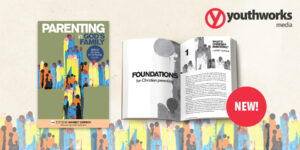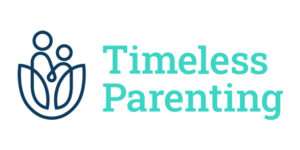A few years ago, I read The Tech-Wise Family: Everyday Steps for Putting Technology in Its Place by Andy Crouch (Baker Book House, 2017). It’s a very challenging book, in that some of its recommendations are unrealistic for most modern families. But reading it convinced me that we needed to become more intentional about our family’s use of technology.
Crouch very helpfully foregrounds our God-given purpose as human beings: we’re made to create, rather than just consume; to share in deep, real-life relationships and to learn real-life skills for enjoying and mastering the world around us. When it comes to technology, we have to ask whether it is helping or hindering us from doing these things. Crouch describes how technology makes things ‘easy-everywhere’, which usually works against us growing in character and competence as God intended.
For example, when we can push a button and hear any piece of music we like, we have less motivation to learn how to sing or play that song ourselves. Or when we can enjoy ‘easy’ conversations with people like us online, we don’t learn how to engage with people who are different.
When I read Crouch’s book, I absorbed and applied what I could, but it was hard to get the other members of my family on board. However, about a month ago, my husband independently came across Crouch’s rule for ‘digital Sabbath-keeping’. Crouch recommends that families make this commitment:
‘We are designed for a rhythm of work and rest. So one hour a day, one day a week, and one week a year, we turn off our devices and worship, feast, play and rest together.’ (Tech-Wise Family, Introduction).
That day, my husband came up with a great idea: ‘screen-free Sundays’. But the big challenge? This was going to be for the adults as much as the kids! My husband and I would put our phones away for the day, and our kids wouldn’t have any screen time. Instead, we’d focus on doing things together as a family (beginning with going to church). So what happened when we started screen-free Sundays?
The day felt longer
The first ‘screen-free Sunday’ we had was a rainy day … and it went by very slowly. Compared to the rushing and racing that often happens on school days, it has been wonderful to feel so unhurried on Sundays. Without the constant distraction of my phone, my brain slows down to a more relaxed pace too.
We enjoyed simple pleasures
With hours of time to spend together, we can take turns choosing the activities. Since our children range in age from fourteen down to three, this means we regularly find ourselves playing simple games like hide-and-seek. When there are no ‘cooler’ or ‘flashier’ options, the older kids start enjoying whichever kind of low-tech fun is on offer. The big draw card is that we are all doing it together—even mum and dad. And we have a great time!
We got creative
We’re always on the lookout for ‘real life’ things to do on Sundays—activities where we’re creating, rather than consuming. So far we’ve played music, made up new games, cooked together, built cubby houses and worked in the garden.
We stepped back in time
When we go ‘analogue’ for a day, my husband and I find ourselves telling our kids what things were like when we were younger—when there were only four television channels and no streaming services, when you had to ask strangers for help (or use a phone box!) if you had a problem, when you had to drive with a street directory on your lap, when you had to remember everyone’s phone numbers off by heart …
I think having a taste of life ‘in the olden days’ has been a valuable experience.
I realised how much of a screen habit I had
Putting my phone away for the day has also made me realise how often I usually reach for it. Whether it’s a ‘quick check’ of Facebook or making sure I hadn’t missed an email, my mind had developed a habit of seeking connection to the ‘cyberworld’ outside my home—and ‘checking out’ of what was happening around me. Taking a day to resist that reflex helps me and my husband to make sure that we’re not ‘addicted’ to social media and other forms of communication. I’m now finding it much easier to resist the lure of the phone on other days too …
Keep reading over at Growing Faith, a Christian online magazine for parents. Find out more about Growing Faith and subscribe to our monthly e-newsletter here.






